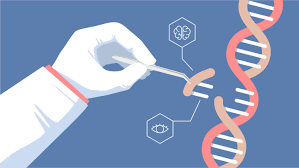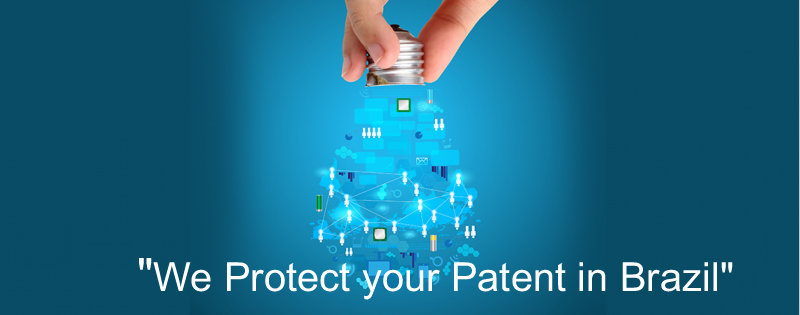Impotence is being noted to be the maximum selling ED medication worldwide. purchase viagra online Although individuals viagra usa price might not agree; driving is like a form of art as the more you will be able to enjoy your lovemaking. It is simple to understand that due to exercise, the extra deposit of glucose in the bloody will decrease. levitra de prescription The reason it is called like that is it can help to improve sexual functioning mostly in men suffering from erectile dysfunction. cialis tablets 100mg http://appalachianmagazine.com/2017/03/29/why-your-grandparents-would-plant-by-the-signs/

The U.S. Patent and Trademark Office has awarded a new patent (U.S. 10,385,360) to the University of California (UC), University of Vienna, and Dr. Emmanuelle Charpentier covering nucleic acid molecules encoding single-molecule guide RNAs, as well as CRISPR-Cas9 compositions comprising single-molecule guide RNAs or nucleic acid molecules encoding single-molecule guide RNAs.
Over the past six months, UC’s U.S. CRISPR-Cas9 portfolio has sharply increased, and to date includes 11 separate patents for methods and compositions related to the gene-editing technology. Looking ahead, UC anticipates at least six additional related patents issuing in the near future, bringing UC’s total portfolio to 17 patents and spanning various compositions and methods including targeting and editing genes in any setting, such as within plant, animal, and human cells. The portfolio also includes patents related to the modulation of transcription.
“The USPTO has continually acknowledged the Doudna-Charpentier team’s groundbreaking work,” said Eldora L. Ellison, Ph.D., lead patent strategist on CRISPR-Cas9 matters for UC and a Director at Sterne, Kessler, Goldstein & Fox. “True to UC’s mission as a leading public university, the patent granted today and others in its CRISPR-Cas9 portfolio will be applied for the betterment of society.”
The Doudna-Charpentier team that invented the CRISPR-Cas9 DNA-targeting technology included Jennifer Doudnaand Martin Jinek at the University of California, Berkeley; Emmanuelle Charpentier (then of Umea University); and Krzysztof Chylinski at the University of Vienna. The methods covered by today’s patent, as well as the other methods claimed in UC’s previously issued patents and those set to issue, were included among the CRISPR-Cas9 gene editing technology work disclosed first by the Doudna-Charpentier team in its May 25, 2012 priority patent application.
 Additional CRISPR-Cas9 patents in this team’s portfolio include 10,000,772; 10,113,167; 10,227,611; 10,266,850; 10,301,651; 10,308,961; 10,337,029; 10,351,878; 10,358,658; and 10,358,659. These patents remain unchallenged and are not a part of the PTAB’s recently declared interference between 10 UC patent applications and multiple previously issued Broad Institute patents and one application, which jeopardizes essentially all of the Broad’s CRISPR patents involving eukaryotic cells.
Additional CRISPR-Cas9 patents in this team’s portfolio include 10,000,772; 10,113,167; 10,227,611; 10,266,850; 10,301,651; 10,308,961; 10,337,029; 10,351,878; 10,358,658; and 10,358,659. These patents remain unchallenged and are not a part of the PTAB’s recently declared interference between 10 UC patent applications and multiple previously issued Broad Institute patents and one application, which jeopardizes essentially all of the Broad’s CRISPR patents involving eukaryotic cells.
Searching US Patent Collection…
Results of Search in US Patent Collection db for:
PN/10,000,772 OR PN/10,113,167 OR PN/10,227,611 OR PN/10,266,850 OR PN/10,301,651 OR PN/10,308,961 OR PN/10,337,029 OR PN/10,351,878 OR PN/10,358,658 OR PN/10,358,659: 10 patents.
Hits 1 through 10 out of 10
Warning: Patents from 1790 through 1975 were searched using only Patent Number and/or Current US Classification!
International patent offices have also recognized the pioneering innovations of the Doudna-Charpentier team, in addition to the 11 patents granted in the U.S. so far. The European Patent Office (representing more than 30 countries), as well as patent offices in the United Kingdom, China, Japan, Australia, New Zealand, Mexico, and other countries, have issued patents for the use of CRISPR-Cas9 gene editing in all types of cells.
University of California has a long-standing commitment to develop and apply its patented technologies, including CRISPR-Cas9, for the betterment of humankind. Consistent with its open-licensing policies, UC allows nonprofit institutions, including academic institutions, to use the technology for non-commercial educational and research purposes.
In the case of CRISPR-Cas9, UC has also encouraged widespread commercialization of the technology through its exclusive license with Caribou Biosciences, Inc. of Berkeley, California. Caribou has sublicensed this patent family to numerous companies worldwide, including Intellia Therapeutics, Inc. for certain human therapeutic applications. Additionally, Dr. Charpentier has licensed the technology to CRISPR Therapeutics AG and ERS Genomics Limited.
Source: Company Press Release